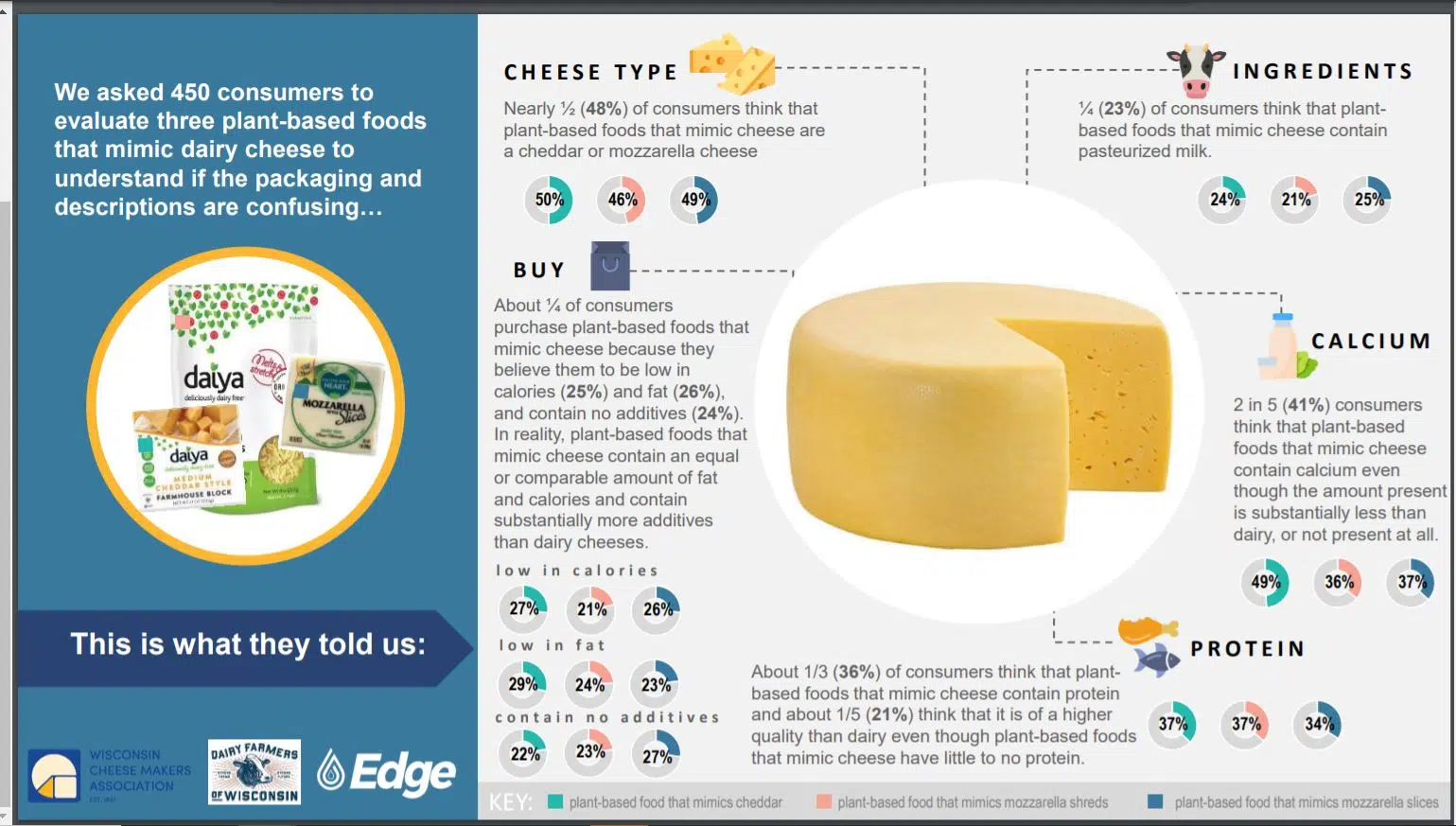GREEN BAY, Wis. — Edge Dairy Farmer Cooperative, one of the largest dairy co-ops in the country, welcomed the reintroduction of federal legislation that would address the misuse of dairy terms on the labels of imitation dairy products.
Today, Sens. Tammy Baldwin, D-Wis., Jim Risch, R-Idaho, SusanCollins, R-Maine and Peter Welch, D-Vt. reintroduced the DAIRY PRIDE Act, prohibiting the mislabeling of imitation-dairy products made from nuts, seeds, plants and algae from using dairy terms such as milk, yogurt or cheese. Existing regulations define “dairy products” as products manufactured for human consumption which are derived from the processing of milk, and includes fluid milk products. Unfortunately, the FDA does not enforce this definition.
In addition, the bill would nullify the recent FDA guidance on the labeling of plant-based milk alternatives. That guidance would allow imitation products to continue to use the dairy term ‘milk’, claiming it has become a common name and disregarding the agency’s own standard of identity.
 |
“The FDA continuously fails to enforce its own labeling rules. This lack of action continues frustrating dairy farmers and consumers,” Edge President Brody Stapel said. “Research has told us that consumers are confused by how imitation-dairy products are marketed. There are labeling standards for a reason. Most food products are subject to strict labeling rules, but in the dairy aisle the lack of enforcement is extensive.
“We appreciate Senator Baldwin taking the lead reintroducing this bill and sending a clear message to the plant-based alternative processors that they must abide by federal regulations. Accurate labeling supports real dairy products, produced by actual dairy farmers and processors.”
Edge has been at the forefront of advocacy for enforcing the existing FDA regulation. Based on a co-commissioned national survey, the cooperative found that customers are confused about whether imitation cheese products are indeed dairy foods and whether they carry the same nutritional value. Some of the findings:
- One-quarter of customers mistakenly think plant-based products labeled as cheese contain milk.
-
One-third of customers believe that the products contain protein, and 21% think it is higher quality than dairy even though the imitations have little to no protein. Real dairy cheese has 7 grams of protein.
- One-quarter of customers purchase imitation cheeses because they believe them to be low in calories and fat and without additives. In reality, these plant-based foods contain an equal or comparable amount of fat and calories and substantially more additives than dairy cheeses.





